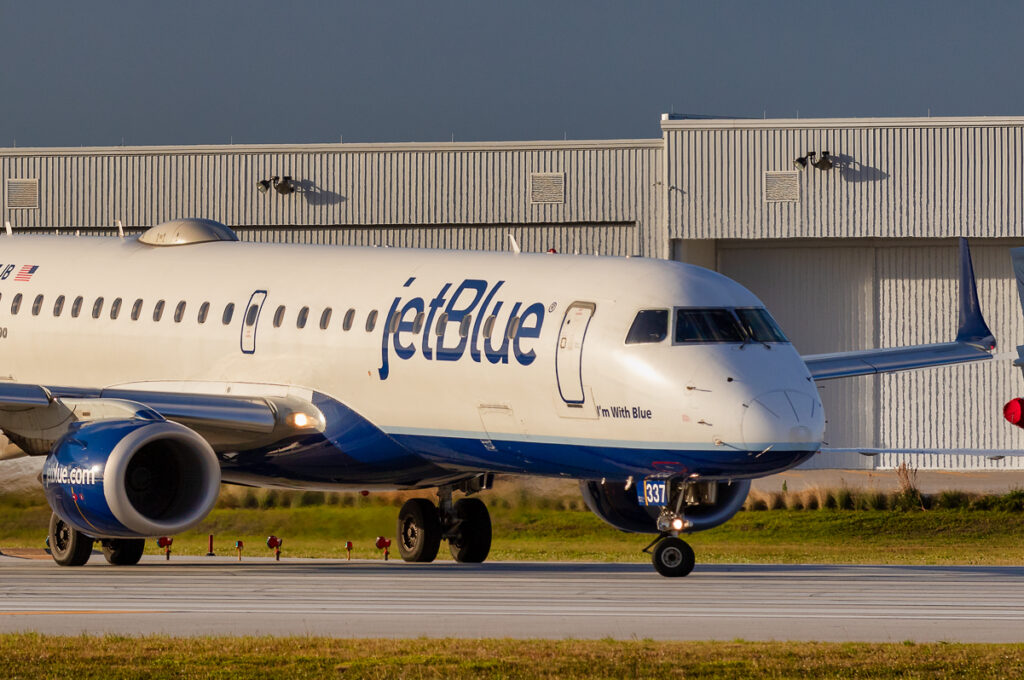
Skift Take
Icahn’s stake in JetBlue now makes him the third-largest investor in the airline.
JetBlue’s stock fell by nearly 50% in the past year as it reeled from the loss of its merger with Spirit Airlines and declining revenues.
Enter Carl Icahn.
The activist investor reported a 9.1% stake in JetBlue, saying he believed the airline’s shares were undervalued in a regulatory filing Monday night. JetBlue shares rose by more than 16% after news of Icahn’s stake became public.
Icahn is also seeking board representation, according to the filing. The stake now makes Icahn the third-largest investor in JetBlue, following BlackRock and Vanguard.
The activist investor has made billions from acquiring stakes in struggling companies. But this isn’t the first time Icahn, known as a “corporate raider,” has invested in an airline.
Driving TWA to the Ground
In 1985, Icahn acquired a more than 20% stake in Trans World Airlines, as it struggled to be profitable in a newly-deregulated airline industry.
Initially, he helped the airline grow through merging with Ozark Airlines in 1986, cementing TWA’s place as a dominant carrier in the St. Louis area.
But the death knell for TWA came in 1988: Icahn took the company private. Icahn cashed in on $469 million, but the airline was straddled with a $540 million in debt.
“It became more and more apparent that Carl was not interested in growing the airline but in using TWA as a financial vehicle to acquire wealth for himself,” a TWA pilot told St. Louis Magazine in 2006.
Icahn systematically sold the airline’s assets to repay those debts. He most notably sold TWA’s London routes to American Airlines for $445 million in 1991. A year later, TWA filed for bankruptcy.
After Icahn’s ownership, TWA emerged from bankruptcy and then filed for bankruptcy again in 1995. It merged with American Airlines in 2001.
Icahn’s ownership of TWA — an airline with a glamorous reputation that was closely associated with the Golden Age of flying — attracted congressional and public scrutiny, but also made him a Wall Street household name.
An Active Role in JetBlue?
While Icahn has the third-largest stake in JetBlue, it’s unclear what sort of changes he may demand as an activist investor.
JetBlue has struggled with its strategy as it has sought to compete with the Big Four airlines — American, Delta, United and Southwest. The carrier has expanded into Europe and wanted to merge with Spirit to further fuel its growth ambitions, but a federal judge struck down the merger.
Massachusetts District Court judge William Young blocked JetBlue’s merger with Spirit on the grounds that it would reduce competition in the industry and hurt consumers.
JetBlue and Spirit filed a motion to appeal the ruling with the First Circuit Court of Appeals, with that trial set to take place in June.
Icahn’s activist campaign in JetBlue is also his first since short seller Hindenburg Research accused Icahn’s firm of operating a “Ponzi-like” structure to pay dividends, according to Reuters. The attack caused Icahn to lose billions of dollars of net worth and hindered his ability to make new bets.
Now, JetBlue is figuring out a potential future without Spirit. New CEO Joanna Geraghty said the airline is looking for ways to cut costs, while also shifting its focus to its popular leisure routes.
